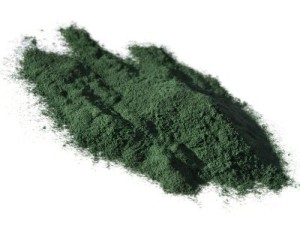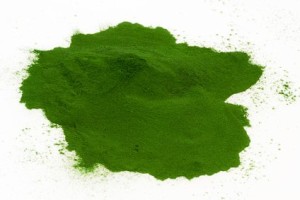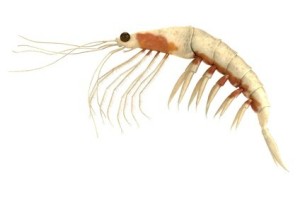- Are they plants?
- Are they animals?
- What are they exactly?
To get a better understanding about spirulina and chlorella, let’s examine the five kingdoms of life:
- Plantae – the plant kingdom
- Animalia – the animal kingdom
- Fungi – the fungus kingdom
- Protista – the protist kingdom
- Monera – the single-celled organism kingdom or the bacteria kingdom
All living organisms on this planet are grouped into one of these five kingdoms.
Spirulina
Spirulina has been classified as a type of cyanobacteria. Cyanobacteria are single-celled organisms with a chloroplast, conferring photosynthetic ability. Photosynthesis is the process by which an organism creates its own food from sunlight. The chloroplasts in spirulina give it a blue-green coloring, which is why spirulina is often informally referred to as a “blue-green algae”. It’s not actually an algae, it’s a type of bacteria.
There are two species of spirulina available as products:
- Arthrospira platensis – formerly known as spirulina platensis
- Arthrospira maxima – formerly known as spirulina maxima
Given that spirulina is a type of cyanobacteria, it is found in the bacteria kingdom.
There are many species of chlorella all of which have been classified as green algae. Historically, most types of algae have been grouped in the plant kingdom, however, some species of algae including chlorella are considered to be structurally simpler and smaller than plants. Because chlorella is such a small algae, there are some researchers that would like to have it classified as a protist. At this time, there is some controversy as to whether or not chlorella is a plant or a protist.
Let’s take a closer look at what a protist actually is. Is a protist an animal? No, animals are grouped in a separate kingdom of their own. Protists are multicellular, they have many cells, so they are not bacteria. Protists are not as complex and have a simpler cellular organization than plants, animals, or fungi, which is one of the reasons why protists have their own separate kingdom. Protists generally live in water examples of which include simpler algaes and other types of microscopic organisms. Although its classification is a work in progress, chlorella clearly has never been classified as animal, only a plant or protist.
For comparison, let’s consider krill. How does krill compare to chlorella? Krill is known for its omega-3 fat content, specifically DHA. Krill has been classified in the animal kingdom because it has a nervous system, digestive system, eyes, and other structures and functions in common with animals. Krill is a small animal at 5 cm in length. By contrast, chlorella is 0.0005 cm in diameter and spirulina is 0.0005 cm long, both being much smaller than krill.
In summary, spirulina is a type of cyanobacteria classified in the bacteria kingdom, while chlorella is a type of algae that has been historically considered in either the plant kingdom or the protist kingdom. Clearly neither spirulina nor chlorella has ever been grouped in the animal kingdom.
Interested in taking your nutrition knowledge to the next level?
We cover this topic and so much more in our online Mastering Raw Food Nutrition and Educator Course. For more class details, click here.
Additionally, our book The Raw Food Nutrition Handbook: An Essential Guide to Understanding Raw Food Diets addresses many hot topics in raw food nutrition such as essential fats, protein, nutrient content of raw food diets, food combining, enzymes, hydration, vitamins, minerals, and many more. We value education on these important topics and are happy to finally bring this book to you. The book is available on Amazon and other online booksellers.
One of the best ways to keep in touch with us is to join our email list. You’ll receive a free copy of Our Top 12 Strategies for Long Term Success on A Raw Plant-Based Diet eBook along with regular information about raw food and plant-based diets and periodic promotions for our classes, events, and other offerings!



